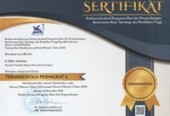Looking at The Civil Suits and Court Cases Under the Justice Against Sponsors of Terrorism Act: Why it Fails?
DOI:
https://doi.org/10.28946/slrev.Vol9.Iss1.3128.pp208-233Keywords:
Justice Against Sponsors of Terrorism Act (JASTA), Civil Litiga-tion, Terrorism, Foreign Sovereign Immunities Act (FSIA), US Anti-Terrorism Act (ATA).Abstract
Terrorism remains a persistent and significant global threat, with far-reaching consequences for world peace and stability. The September 11, 2001 attacks marked a pivotal moment in the fight against terrorism, prompting governments and international organizations to adopt new strategies to counter this threat. In response to these tragic events, the United States enacted the Justice Against Sponsors of Terrorism Act (JASTA), a legislative framework designed to allow victims of terrorism to seek compensation from state sponsors of terrorism. While JASTA reflects a commitment to holding individuals and nations accountable for supporting terrorism, it has sparked controversy, with critics arguing that it undermines the principle of sovereign immunity, while others view it as a crucial tool for combating terrorism. This study examines the legal and procedural implications of JASTA, focusing on the challenges of bringing civil actions under this law. Through a literature-based research approach, the study explores anti-terrorism laws, relevant case law, and the practical obstacles of pursuing legal claims under JASTA. The findings highlight the legal complexities and political considerations involved in holding state sponsors accountable, emphasizing the need for a balanced approach that upholds international law and diplomacy while ensuring justice for terrorism victims. This research contributes to ongoing discussions on refining strategies to combat state-sponsored terrorism and offers recommendations for potential legislative reforms to enhance the effectiveness of JASTA in achieving justice.Downloads
References
Chertoff, Michael, Bury, Patrick, and Richterova, Daniela, “Bytes not waves: information communication technologies, global jihadism and counterterrorism.†International Affairs, vol. 96, issue 5. (2020). p.1305–1325. https://doi.org/10.1093/ia/iiaa048.
Fahmy, Walid. “Some Legal Aspects of the Justice Against Sponsors of Terrorism Actâ€. Brics Law Journal, 4(1) (2017): 40–57. https://doi.org/10.21684/2412-2343-2017-4-1-40-57.
Fakhoury, Amer Ghassan. “Justice Against Sponsors Of Terrorism Act (Jasta) Under The Light Of Public International Law: Shifting From The Absolute Theory To The Restrictive Theoryâ€. International Journal of Humanities and Social Science Invention, vol. 6, no.10, (2017), p. 29–45.
Galli F. “The Legal and Political Implications of the Securitisation of Counter-Terrorism Measures across the Mediterraneanâ€. (2008). European Institute of the Mediterranean. www.euromesco.net/publication/the-legal-and-political-implications-of-the-securitisation-of-counter-terrorism-measures-across-themediterranean/
Garrison, Arthur H. “Terrorism: The nature of its historyâ€. Criminal Justice Studies. 16:1. (2003), p.40. https://doi.org/10.1080/08884310309608.
Hancock, Rachael. E. Mob-legislating: JASTA's addition to the terrorism exception to foreign sovereign immunity. Cornell Law Review, 103(5), (2019), p.1293–1328.
Hani A. F. “Terrorism and the Middle East: Context and Interpretations.†Arab Studies Quarterly, (1987): 9(2). p.150.
Hattem, Julian. ‘Congress Publishes Redacted 28 Pages From 9/11 Report’, The Hill. (2016)
Holcombe, Katherine. “JASTA Straw Man? How the Justice Against Sponsors of Terrorism Act Undermines Our Security and its Stated Purpose.†Am. U. J. Gender Soc. Pol'y & L (2017) 25: p.359–390.
Institute for Economics and Peace. Global Terrorism Index 2020: Measuring the Impact of Terrorism. (2020): p.43.
Kim, Wukki, and Sandler, Todd. “Middle East and North Africa: Terrorism and Conflicts.†Global Policy (2020): 11(4). p.424. https://doi.org/10.1111/1758-5899.12829.
Library of Congress. Algeria, Morocco, and Saudi Arabia: Responses to Terrorism’, the Law Library of Congress. (2015). https://www.loc.gov/law/help/counterterrorism/response-to-terrorism.pdf
Maggs, Gregory E. “Terrorism and the Law: Cases and Materials.†Cases and Materials. 2nd Ed. Thomson Reuters. (2010): p.1–51.
Mansour-Ille, Dina. “Counterterrorism policies in the Middle East and North Africa: A regional perspective.†International Review of the Red Cross. 103(916-917) (2021) p.653–679.
Martin, Gus. “Essentials of Terrorism: Concepts and Controversies.†Los Angeles, SAGE Publications. (2019): p.38–39.
Murphy, John F. “Civil Litigation against Terrorists and the Sponsors of Terrorism: Problems and Prospectsâ€. Review of Litigation, vol. 28, no. 2 (2008): 315–342.
Onion, Amanda, Sullivan, Missy, Mullen, Matt, Zapata, Christian. French Revolution. A&E Tel-evision Network. History (2009). https://www.history.com/topics/european-history/french-revolution.
Rapoport, David C. “The Four Waves of Modern Terror: International Dimensions and Conse-quences.†Routledge, (2013). p.47.
Simon, Jeffrey D. “Technological and Lone Operator Terrorism: Prospect for a Fifth Wave of Global Terrorism.†Routledge, (2011). p.53–55.
Stephens, Beth. “Symposium: Responding to Rogue Regimes; From Smart Bombs to Smart Sanctions: Accountability Without Hypocrisy: Consistent Standards, Honest History.†36 New England Law Review 919, (2002).
UN General Assembly (25th Session). “Declaration on Principles of International Law concerning Friendly Relations and Cooperation among States in accordance with the Charter of the United Nationsâ€. (1970). A/RES/2625(XXV). p. 123.
Wuerth, Ingrid. Justice Against Sponsors of Terrorism Act: Initial Analysis. LAWFARE. (2016). https://www.lawfareblog.com/justice-against-sponsors-terrorism-act-initial-analysis
Downloads
Published
Versions
- 2025-01-31 (2)
- 2025-01-31 (1)
Issue
Section
License
Copyright (c) 2025 Sriwijaya Law Review

This work is licensed under a Creative Commons Attribution-ShareAlike 4.0 International License.















